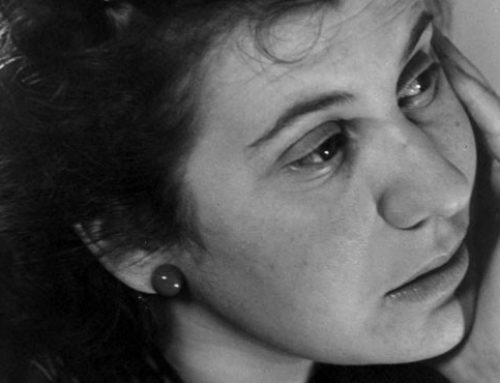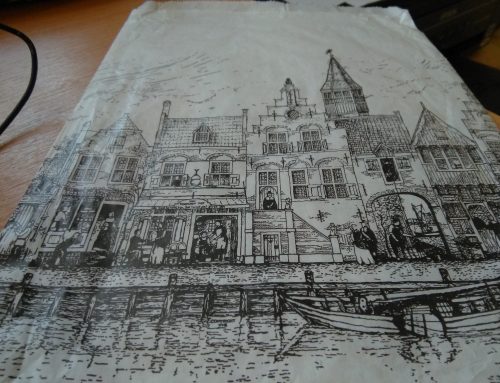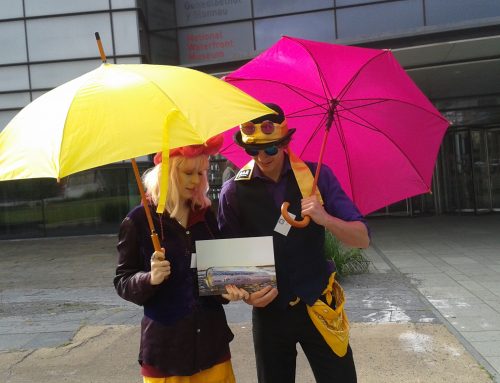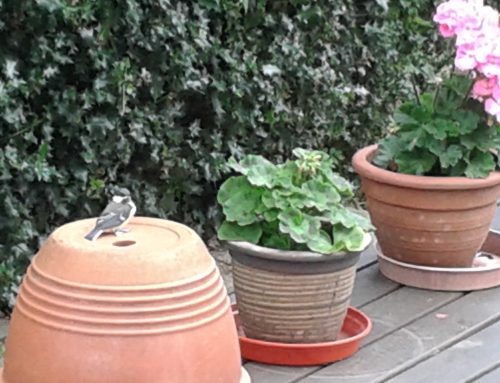It has taken me some months to finish the getting-on-for 600 pages of Siddharta Mukherjee’s magesterial study of cancer – The Emperor of All Maladies. I’m glad I did, and also that I took my time. It’s a big subject that dominates many lives and this book is a reminder of how multiple it is, and how much perceptions of what it does and how, have changed in recent decades.
The book presents scientific research of course, but what stood out for me were the stories of individuals. There are patients of course, who survive or don’t, but most vivid are the scientists, nearly all of whom were ahead of their time, marginalised, under-funded and often ridiculed, whose ideas later become mainstream. The main attribute they share is persistence and yet, time and again, their discoveries are ‘not incremental but cataclysmic and paradigm-shifting. Technology dissolves its own past … the speculator who bought stock options in an iron-lung company before the discovery of the polio vaccine, or the scientist who declared bacterial pneumonia incurable just as pencillin was being discovered, were soon shown to be history’s fools’. (p.406)
And the backdrop is highly political (and therefore economic), with other colourful and powerful people, organisations and even presidents determining how research and treatment will be funded and administered, how and to whom. And cancer too is personified as the Emperor in the title of the book, which the author calls ‘a biography’, although we discover he or she has multiple personalities.
Inevitably, on last week’s course in Creative Writing in Health and Social Care, there were many cancer stories. It’s an epidemic that touches everyone either directly or through family and friends. One reason I was so impressed by Siddharta Mukherjee’s book is the way it brings together the imagination with science. It’s fashionable to knock modern medicine but helpful, I think, to view any science or technology as, like poetry, something that begins with the image, the imagination. In a Guardian interview, Decca Aitkenhead writes
‘One of its most arresting observations was inspired by a conversation between Mukherjee and a friend many years earlier “about the nature of interior and exterior”, which returned to him as he was working on the book. “Every era,” it suddenly struck him, “casts cancer in its own image.” The US in the 70s was haunted by cold war fears of the enemy within – and so the “big bomb” was replaced by “the big C”. HIV overshadowed the following decade, and then the search for cancer-causing viruses became oncology’s new obsession. Now that we’re obsessed with genetics, the focus of research has moved on to hereditary causes. “When a disease insinuates itself so potently into the imagination of an era,” he writes, “it is often because it impinges on an anxiety latent within that imagination.”
There’s a growing body of poetry addressing the disease and it would be interesting to see what images recur. In recent years, I’ve been espeically struck by the late Julia Darling’s poems. Her personal, humane and powerful books Sudden Collapses in Public Places and Apologies for Absence integrate the subject matter of her own breast cancer into collections that also explore friendship, motherhood, aging and the endless waiting in hospitals that illness entails. One of her poems, ‘Too Heavy’ which can be read here, discusses the language used by doctors.
Siddharta Mukherjee also picks up this theme:
‘Even an ancient monster needs a name. To name an illness is to describe a certain condition of suffering – a literary act before it becomes a medical one. A patient, long before he becomes the subject of medical scrutiny, is, at first, simply a storyteller, a narrator of suffering who has visited the kingdom of the ill. To relieve an illness, one must begin, then, by unburdening the story.’ p.46
I’d like to quote more, because it so fascinating and relevant to poetry therapy, but I could quote half the book … Siddharta Mukherjee goes on to talk about the etymology of the word ‘cancer’. Once the disease was named, around 400BC, in the time of Hippocrates, Karcinos, Greek for crab, the metaphor began to inform medicine, so that tumours were observed to spread stealthily sideways through the flesh like a crab, or develop carapaces.
Onkos, from which we get oncology, meant a load or burden. It was also used in ancient Greece as a theatrical term for a tragic mask which was ‘burdened’ with a comical weight to demonstrate the psychic load carried by its wearer. This seems closely related to Julia Darling’s ‘Too Heavy’ poem. Would cancer seem different if the words used to describe it were light, if we talked in the language of lollipops, feathers or rainbows rather than burdens?
Kathleen Jamie has written a remarkable essay about reclaiming her own body after treatment for breast cancer, not immediately through her own art form of poetry, but via the work of Brigid Collins, a visual artist for whom she sat as a model. Brigid coined the title word Frissure, bringing together the fissure of a new scar and the frisson it creates. She made images of Kathleen Jamie’s scar in a variety of media to which Kathleen Jamie responded with words. She says ‘At first I tried to write ‘poems’ but the tone was all wrong. Too smart, too concluded. A looser weave was required, something thready, gauzy, that could be unpicked.’
The artist’s images seem to have acted as a bridge for a new perception of the aftermath of surgery, ‘… in Brigid’s care the line has become a starting place. Here it is transformed into a rose stem, a river, a faraway island, the dawn sky. It leads me from fear and loss back into the beautiful world.’
This thought brings me back to a telling line in The Emperor of All Maladies: ‘This War on Cancer may best be ‘won’ by redefining victory.’ In Ireland recently, a group collaged and wrote on the theme of ‘here it is transformed’, not necessarily cancer, but any site of the body that changed through accident, illness or just through the simple business of living. The images were remarkable. I’ll post more on that another time.
4 Comments
Leave A Comment Cancel reply
You must be logged in to post a comment.











I hadn’t read Julia Darling’s poems about her cancer – they’re wonderful. Thank-you. Really looking forward to reading about the Ireland group’s collaging day here soon.
I hadn’t read Julia Darling’s poems either so thanks for the link. They are excellent. Very powerful. They’ve made me feel quite sad though.
Thanks for the comments. Carol, I’d recommend reading Julia Darling’s full collections where the sadness is leavened by a great joy in life.
So many inspirational ideas here Vicky — from writing the body to the power of metaphor. I’m also taking my time to read The Emperor of All Maladies; a real feast of narrative medicine and health writing at its best.